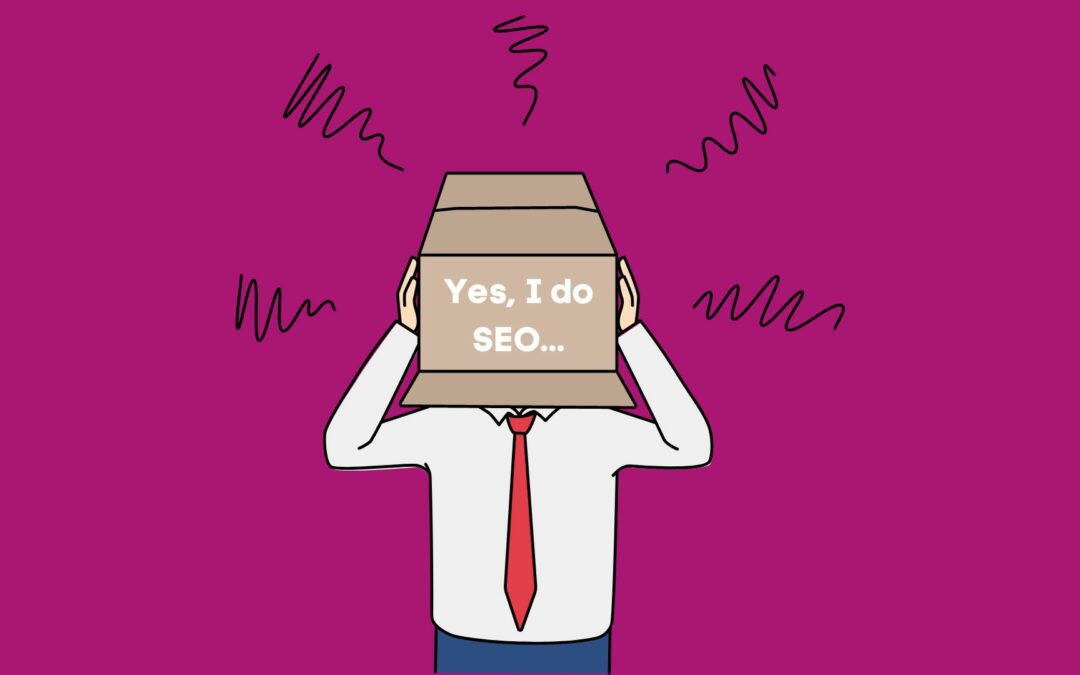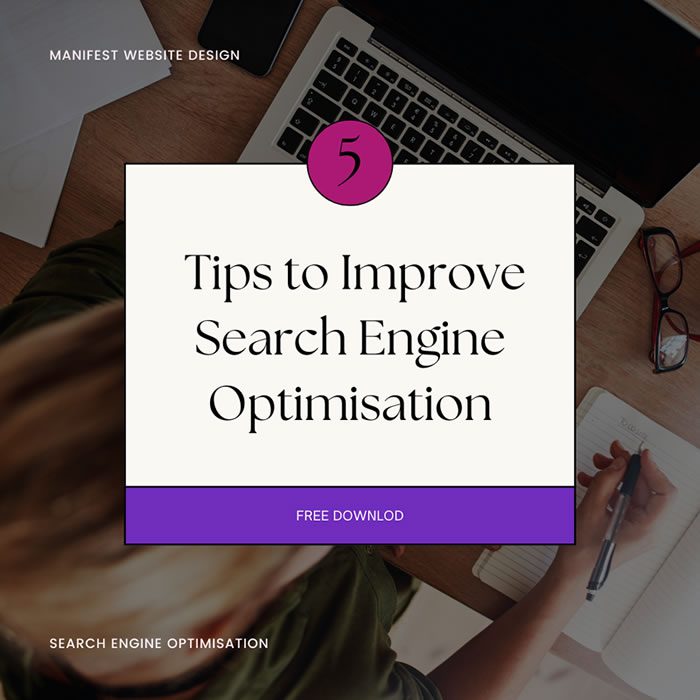Why There’s No Shame in Being Called an SEO Specialist
Let me tell you a secret.
I used to be embarrassed to tell people that I do SEO.
Back then, SEO had a reputation that was somewhat tarnished by black hat tactics, like keyword stuffing, hidden text, link farming, and unrealistic promises made by gurus. Those unethical practices gave the entire industry a bad name, and I found myself associated with that stigma. The field was tainted with the stench of the whole “get-rich-quick-on-the-internet” vibe.
I remember meeting other professionals and feeling the need to downplay my role or even avoid mentioning that I was in SEO altogether. The raised eyebrows, the smirks, and the immediate association with the field were both frustrating and demoralising. I mean, here I was, trying to build a legitimate career, and I felt like I was being judged for something that I had no part in.
So why do SEO specialists have to keep proving the worth of their services? SEO specialists continually face the challenge of proving the worth of their services due to a complex confluence of factors. There is a lingering stigma from past unethical practices, countless search engine updates, a widespread lack of understanding about compounding returns, the dawn of AI, and unrealistic demands for immediate, measurable results.
These factors together make it necessary for specialists to regularly demonstrate the legitimate, long-term value of SEO in digital marketing.
But if there’s one thing I am sure of, it’s that the shame isn’t the real story here. It’s a symptom of a broader problem, a sign that we’ve let the missteps and mistakes of a few define an entire profession. It’s time to shake that off. As an SEO specialist, you need to remind yourself that you bring genuine value to your clients. You’re not just a keyword-stuffer; you’re a bridge-builder between businesses and consumers.
Why do we have to keep proving our worth to brands?
Search engine optimisation is often seen as some esoteric art form that exists on the fringes of the digital marketing universe. It’s strange and misunderstood. And this, perhaps, is where the problem starts for us SEO specialists.
You see, in the fast-moving world of marketing, it’s easier to understand a Facebook post that goes viral or a tweet that racks up thousands of retweets. They are tangible, palpable. You can feel them. You can see them. You can point to them on a screen and say, “Look, this is what success looks like!”
But SEO? It’s different.
SEO operates behind the scenes. It’s the subtle art of crafting content, building links, and making sure both humans and search engine robots appreciate your website. It’s about playing the long game.
The problem is, this doesn’t necessarily translate well to a PowerPoint presentation in the boardroom. The results are often slow to materialise. There’s no immediate gratification, no sudden explosion of likes or shares or comments.
SEO doesn’t have the flash and immediacy of other marketing channels. We’re the stagehands in a play, the ones who ensure that the scenery is perfect, the lighting is just right, and the actors can find their marks. But when the audience applauds at the end, they’re applauding what they see on the stage, not what goes on behind it.
We have to keep proving our worth because our work is invisible. Brands want to see results, and they want to see them now. They want the lights, the glamour, the instant success. Since SEO doesn’t offer that – because it’s about persistence, patience, and a profound understanding of how search engines work – we’re left constantly having to justify our existence.
But we know our value. We understand the critical role that SEO plays in the bigger picture of digital marketing. That’s why we continue to explain, educate, and demonstrate. We know that without the careful, unseen hand of SEO, the digital marketing world would be a far less coherent and effective place.
The spotlight may not always be on us, but we know that we’re an essential part of the show.
How to overcome the shame that’s associated with SEO
SEO has become a bit of a dirty word in some circles because it’s often associated with manipulation or gaming the system. We know that’s not true.
SEO is about connecting. It’s about understanding what people are searching for and creating content that aligns with those needs. It’s a bridge, a way to guide people to the information, product, or service they’re actually looking for. Is that something to be ashamed of? I don’t think so.
The shame, I suspect, comes from the misuse of SEO. Just like any tool, it can be used for good or bad. But it’s not the tool’s fault – it’s how people use it.
Allow me to share some tips on how to overcome the shame that comes with SEO:
- Embrace transparency: Share your strategies and practices. Be open and honest about what you’re doing and why.
- Educate others: The misconception around SEO exists because there’s a lack of understanding. Take it upon yourself to educate your clients, stakeholders, or even fellow marketers about what SEO really means.
- Reflect on your intentions: Are you trying to manipulate rankings or are you sincerely attempting to provide something of value? If it’s the latter, then you’ve got nothing to be ashamed of.
- Join positive communities: Surround yourself with like-minded professionals. Your network should serve as a positive reinforcement.
- Embrace change: Artificial intelligence tools – like ChatGPT – are here to stay, and they’re revolutionising the way we approach SEO.That doesn’t mean the human element is gone; it means it’s evolving. Know that the game has changed. It’s not something to fear but to learn from and leverage.
- Never lose sight of the human element: I’ll never get tired of saying it – SEO is still about understanding human needs and desires. AI can help us do that on a more profound level by analysing data, identifying trends, and even predicting future behaviours.
Related articles:
Why Is SEO Important for a Website?
Is Digital Marketing a Good Career?
5 Proven Ways SEO Can Help Your Business Grow
How to pitch your SEO services
Selling your services isn’t just about demonstrating your knowledge and the results your prospect stands to gain. You need to truly understand the needs and pains of the person or company you’re talking to. Show how you can make their life easier and their business more successful. Be kind, clear, and empathetic. Remember, people do business with people they like. Let’s dive into how to do just that.
1. Show credibility
Start with your real success stories, the ones you’re proud of. Share how you’ve helped businesses grow and what sets you apart. Show a glimpse of what success might look like. Testimonials, certifications, or awards can also bolster your credibility.
Pro tip: Show that you’ve learned from the past and are committed to doing things the right way. This tells the client that you have a lifelong learning mindset.
2. Conduct a customer situation analysis
Again, this is a partnership. Your success is their success. You’ve got to prove you see them as more than just a paycheck.
Research your potential client’s current online presence, including their website’s SEO status, competitors, target audience, and industry trends. Show that you understand their specific needs and challenges. Demonstrate empathy towards their goals. This tailored approach illustrates that you see them not as a generic client but as a unique business with individual needs.
3. Propose a solution that isn’t too technical
Break it down into simple terms. You know the ins and outs of SEO, but they might not. Share your plan without all the tech-speak, focusing on how it will make their life better, easier, and more profitable. You want them to see the value of SEO and not get lost in all its complexity.
4. Craft a compelling call to action
What’s the next step? Make it clear and inviting. It could be an invitation for a detailed consultation, a free SEO audit, or simply a prompt to discuss the proposal further. Your call to action should resonate with what your client needs.
5. Refuse to do dirty work
This one’s close to my heart.
Make your commitment to ethical SEO practices clear. Let them know that you’re committed to doing things the right way, even if it takes a bit longer. Explain that while black hat techniques might offer quick gains, they can lead to penalties and long-term damage. Your refusal to engage in such practices isn’t a limitation but a mark of quality, aligning your services with sustainability and integrity.
Related articles:
Choosing an SEO Company: How to Find Your Perfect Match
The SEO Advantage of Small Businesses
7 SEO Tips to Get Your Website to the Top of Google Search
To SEO or Not to SEO? That Is the Question
Learn how to sell SEO with Manifest Website Design
The shame that has sometimes been associated with SEO doesn’t have to be a continuing part of your career narrative. Search engine optimisation was once seen by some as a manipulative tool used to deceive search engines and users; however, you know all too well that this view paints an unjust picture of an entire profession.
After all, at the heart of SEO lies a timeless truth: It’s all about people. It’s not about gaming the system but, rather, your job is to satisfy users’ curiosity. And as long as we remember that, there’s no room for shame – only space for growth, connection, and endless possibility.
That’s why we only stick to white hat tactics at Manifest Website Design. We don’t take the easy road; slapping together a few keywords and calling it a strategy is a no-no for us. Instead, we focus on the genuine human needs at the core of our strategies. Whether you’re a business owner, marketer, or SEO specialist, let’s walk through them together.

ANA AMISTAD
About the Author
Ana is a Content Manager at Manifest Website Design specialising in digital marketing, SEO, and meaningful stories. Her byline is often found 3,000 feet above sea level.
After hours, she enjoys psych thrillers, reading, dying in video games, and having good conversations. You can reach out to her on LinkedIn.




